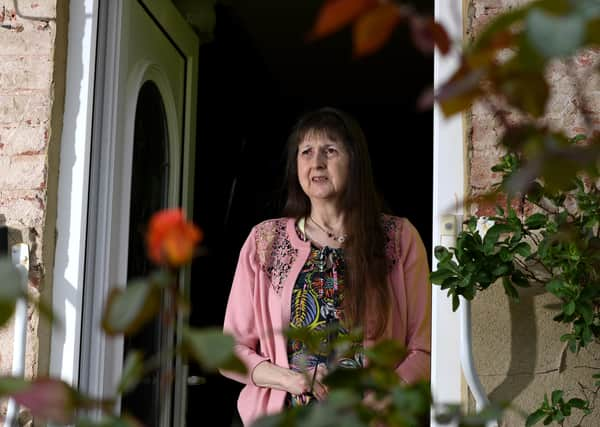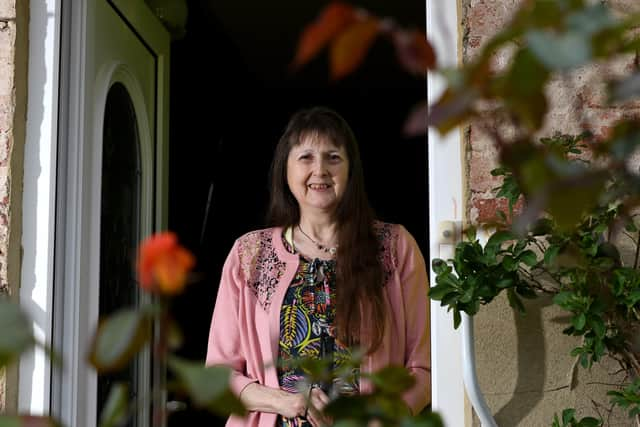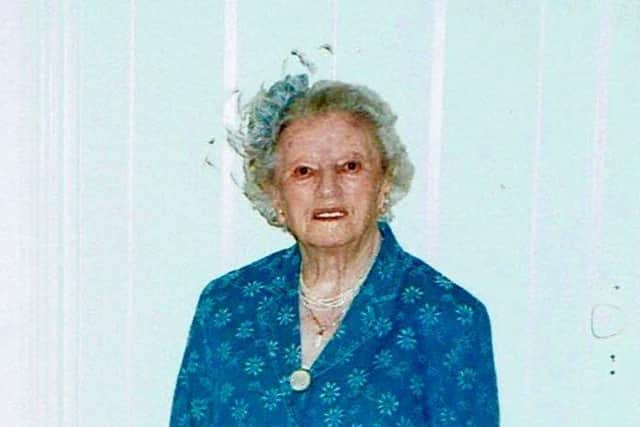‘I looked up and saw a tiger in my doorway. I thought I had dementia’ The condition that creates terrifying hallucinatons


When Cathy Haigh started seeing elephants and tigers in her bathroom she thought she was suffering from dementia.
But it was in fact a condition called Charles Bonnet Syndrome.
Advertisement
Hide AdAdvertisement
Hide AdIn the UK, there are more than one million people of all ages – children are not exempt – whose diminished or lost sight has opened the way for Charles Bonnet Syndrome (CBS) to develop. This condition creates vivid, silent, visual hallucinations which range from disturbing to terrifying – but it is not a mental health issue.


Cathy, 59, is a retired veterinary nursing assistant, who lives in Harrogate. She has ocular sarcoidosis and was classed as severely sight impaired in 2017. Cathy experiences many hallucinations, some of which she finds fascinating – like the half elephant, half hippopotamus, which appeared in the bathroom – but the occasion when the landing became a series of barriers, causing her to become severely disoriented and needing to be rescued by her husband, was a very different and frightening matter.
“Another time, I was bending over putting on my slippers and when I looked up, there was a fully grown tiger standing in the doorway. Then more faces of tigers appeared and jungle plants and trees, but all were orange and black stripes like the tiger. It all started when I saw a mouse on the hospital floor. I thought I was getting dementia, but the consultant at York hospital told me about CBS.”
Cathy was fortunate that her ophthalmologist was prepared to talk to her about CBS. Without an explanation, patients fear that a mental health condition is developing, confide in no one and live unsupported in a distressing world of hallucinations.
Advertisement
Hide AdAdvertisement
Hide AdToo few hospital doctors and GPs are aware of CBS, which means that patients – who explain that their broken limb is a result of avoiding the sudden appearance of a brick wall, gushing water or fire – are ushered wrongly down the mental health pathway, sometimes into a dementia unit. This not only wastes precious NHS resources but adds more distress to the situation.


Cathy finds that differentiating between what is real and what is not contributes to a reduced quality of life. “I cannot go out on my own any more. I would see steps and lift my leg to step up and there would be no step. Or, where there were actually steps, I would think it is flat ground.”
At home – and with a little sight left – it is often possible to read a book or watch television, but not when everywhere is covered in words, maps, musical notes, patterns or colours. Cathy said: “There are very frustrating times when something gets in the way of what I want to do.”
As we take the first steps out of lockdown, we will discover how the vulnerable in society have been affected. Among them is the CBS community who have not just been forgotten, but never identified. The isolation and stress of the last two months has exacerbated the condition with which they live.
Advertisement
Hide AdAdvertisement
Hide AdWhen vision is compromised – by one of the eye diseases, stroke, cancer, accident, diabetes or another condition which damages the optic nerve – the messages from the retina in the eye to the visual cortex in the brain slow, or stop. However, the brain does not – it fires up and creates its own images.
CBS tormented my mother’s final years, which led me to launch Esme’s Umbrella – named after her – in 2015 at the House of Commons, to raise awareness of the condition and to source funding for research.
My medical adviser, Dr Dominic ffytche at King’s College, London, had established that stress, isolation and fever cause an upsurge in episodes of CBS. Confirmation of this comes now from my Helpline, which has received double the number of calls in the last eight weeks from concerned people or family members. My email inbox is, likewise, twice as busy.
Coping with sight loss is difficult enough but when CBS develops too, life becomes extremely taxing.
Advertisement
Hide AdAdvertisement
Hide AdCathy says her episodes last “for a few seconds or for quite a long while. There are days when it comes and goes. Totally random and without any warning.”
One day, we will have that warning. It has become apparent that, at least, two guide dogs can detect when a hallucination is about to appear and warn their owners. The Medical Detection Dogs’ charity will be conducting research for Esme’s Umbrella to identify the change in the body which the dogs are detecting. Feeding this into future research could unravel one of the mysteries of the condition.
Experiencing CBS is like watching a film you would not choose to view – but with no ‘‘off’’ switch. Recent callers and emailers have reported a change in what they see, with benign images being replaced by frightening ones. Many to whom I have spoken are finding the condition intolerable with their anxiety levels climbing out of control.
There is very little medication to alleviate the hallucinations (most of which is not suitable for children or the elderly); much more research is needed; and Dr Dominic ffytche, the only consultant in the UK – indeed the world – needs to be cloned!
Advertisement
Hide AdAdvertisement
Hide AdFor Cathy, lockdown has meant shielding herself in another room from her husband who was still working. She said: “One day, my whole room seemed to have turned upside-down and a large mirror was blocking the door. I was terrified. I didn’t know how I would get out.”
Cathy is determined to debunk the stigma attached to CBS by describing her experiences, in order that others might be reassured and seek comfort and reassurance.
Charles Bonnet syndrome (CBS) is a common condition among people who’ve lost their sight.
It causes people who have lost a lot of vision to see things that aren’t really there – medically known as having a hallucination.
Advertisement
Hide AdAdvertisement
Hide AdEsme’s Umbrella – www.charlesbonnetsyndrome.uk – which carries the coping strategies collected from the CBS community.
Research is being carried out at Moorfields Eye Hospital ‘Covid-19 and CBS’. To take part, call the Helpline 020 7391 3299 or email [email protected].
The Macular Society runs CBS telephone, group, counselling sessions (macular condition not a requirement).
Comment Guidelines
National World encourages reader discussion on our stories. User feedback, insights and back-and-forth exchanges add a rich layer of context to reporting. Please review our Community Guidelines before commenting.